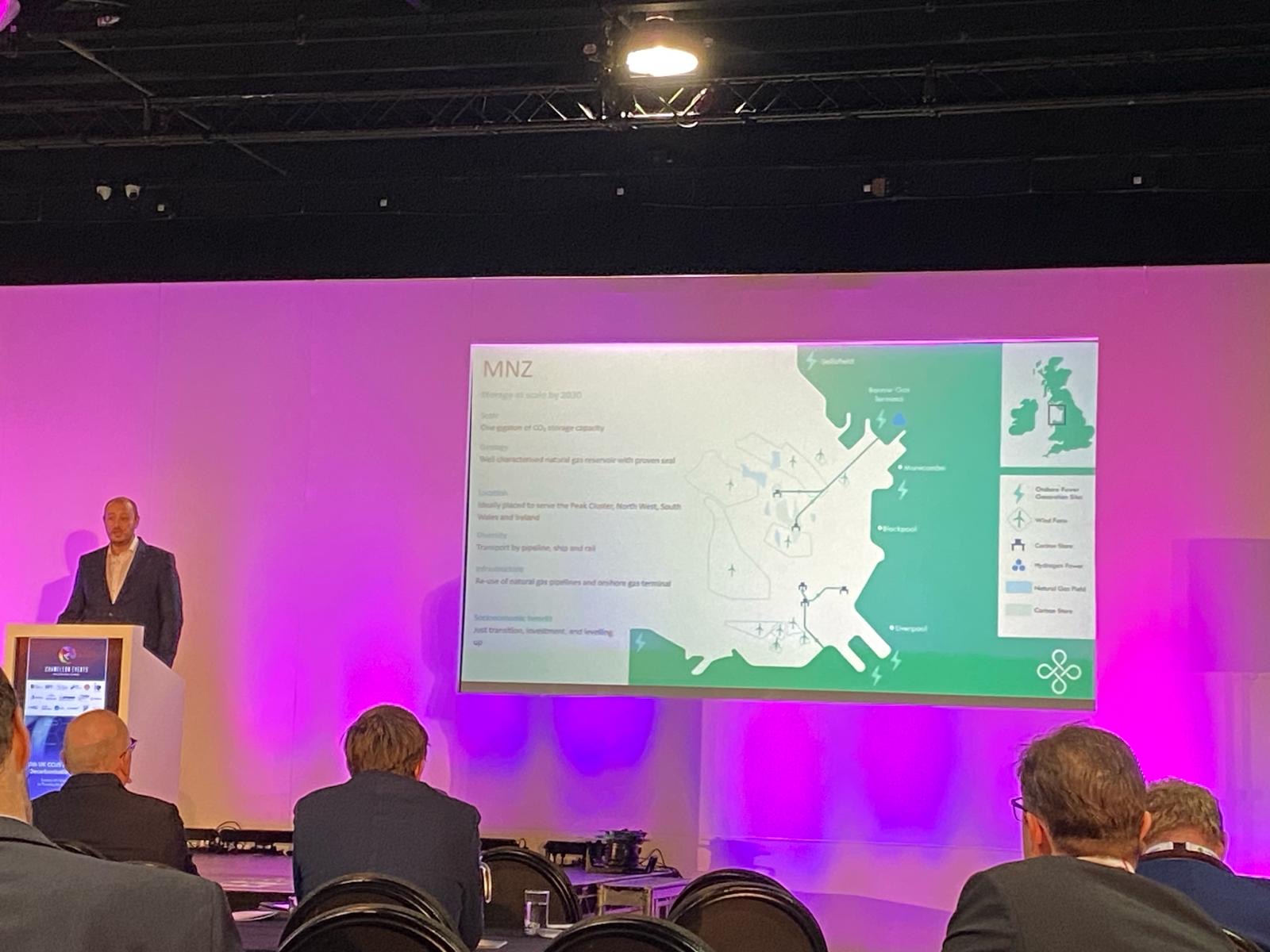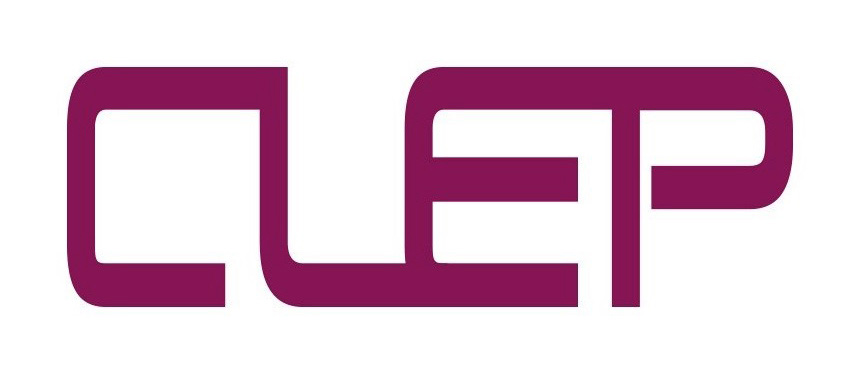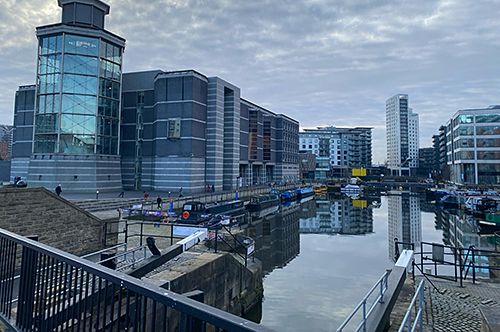CLEP net zero team attend CCUS and hydrogen conference
Last week the CLEP net zero team attended the 5 th UK CCUS and Hydrogen Summit in Leeds. The event brings together industry, government officials and researchers to discuss developments in the CCUS (carbon capture, utilisation and storage) and low-carbon hydrogen industries.
Both technologies have a significant role to play in helping the UK to achieve net zero. CCUS will help to reduce industrial emissions by capturing CO2 and transporting it to permanent storage sites, such as depleted oil and gas fields. Hydrogen is a low-carbon alternative to natural gas, which can enable fuel switching for energy intensive industries such as cement and glass making.
The UK has an ambitious target to store 20 to 30 megatonnes per annum (Mtpa) CO2‚ and deliver up to 10GW of low carbon hydrogen production capacity, by 2030.
Projects from across the North West were represented at the event, including Hynet, one of the UK’s two leading CCUS clusters. Morecambe Net Zero and the Peak Cluster, which plan to utilise the Barrow Gas Terminal, presented their project to the conference.
Cumbria’s role – Barrow Green Hydrogen and Morecambe Net Zero
Cumbria has a significant role to play in developing the CCUS and hydrogen economy, with two projects under development in the county. Carlton Power’s Barrow Green Hydrogen project will produce 21 MW of green hydrogen for use by the neighbouring Kimberley-Clark manufacturing plant, reducing their reliance on natural gas by up to 30%. In December 2023, the project was successful in the UK government’s first Hydrogen Allocation Round (HAR 1) and could begin commercial operations within two years as one of the UK’s first green hydrogen production facilities.
Spirit Energy’s Morecambe Net Zero (MNZ) project plans to store CO2 in the depleted Morecambe gas fields, utilising the Barrow Gas Terminal to receive CO2 for storage. MNZ are working with the Peak Cluster, made up of the Peak District’s cement plants, to provide a long-term CO2 storage solution at Morecambe Bay. The Barrow terminal will also enable CO2 to be shipped in from other locations for storage.
The year ahead for CCUS and hydrogen
2024 is a critical year for the CCUS and low-carbon hydrogen industries. The conference heard from project developers including Essar, a key partner in the Hynet cluster, and Equinor about the need for the first round of CCUS projects to make final investment decisions (FID) later this year. However, there is concern that the looming general election could push back decisions, with any delays to the first CCUS projects putting significant investment at risk and making it harder to reach the UK’s 2030 targets.
Looking to the longer term, the conference also heard from the professional services firm Jacobs about the potential for hydrogen production using nuclear energy, or so called ‘pink hydrogen’. The North West is at the forefront of these efforts, with government funding secured for an R&D project at the EDF Heysham 2 nuclear power station.



